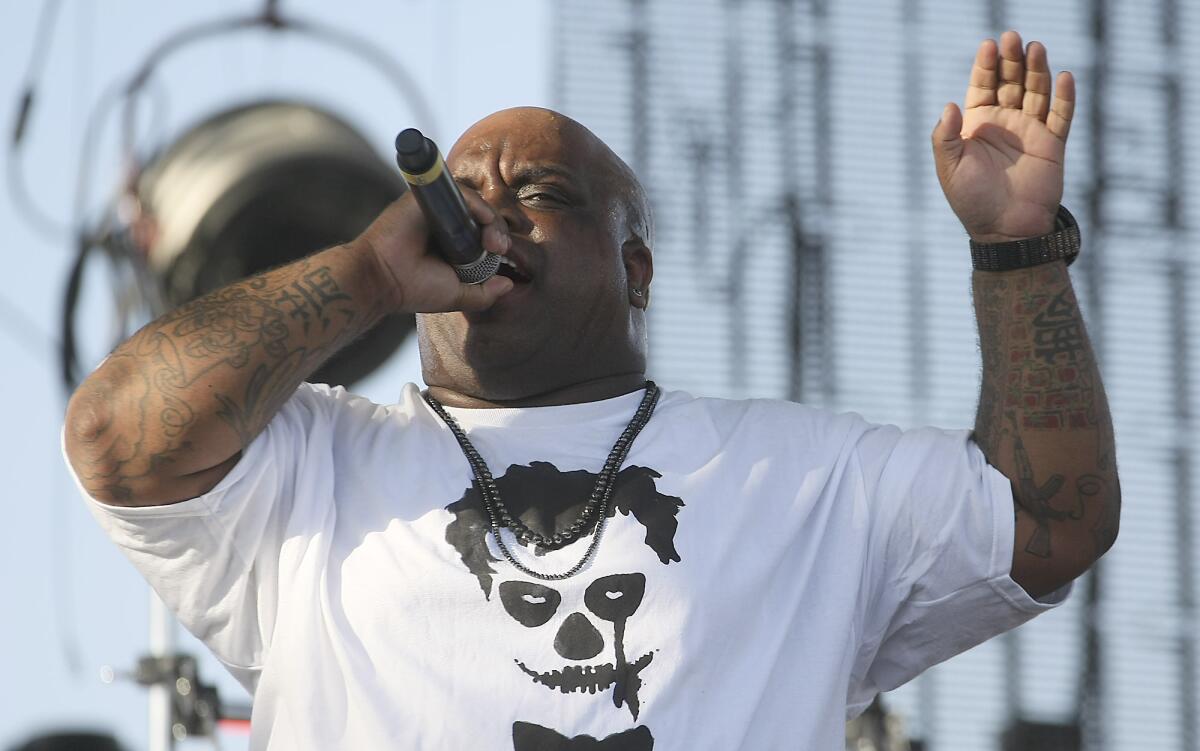Clear Channel and Warner Music Group announce partnership

Clear Channel Media & Entertainment and Warner Music Group Corp., the world’s third-largest record label, have entered a partnership that will let Warner promote music through the radio giant and take in revenue from terrestrial radio.
The companies said Thursday that Warner will share in revenue from all of Clear Channel’s platforms, including its 850 traditional radio stations and its Internet music service iHeartRadio. Financial details were not disclosed.
Traditional AM and FM radio stations currently are not required to pay performance royalties, and record labels, including Warner, and artists are pushing for the U.S. government to establish a performance right that would allow labels and artists to make money from plays of songs on AM and FM stations.
ON LOCATION: Where the cameras roll
Meanwhile, Clear Channel has been making direct licensing deals with independent record labels since last year, starting with Taylor Swift’s Big Machine Label Group, to share revenue.
The partnership with Warner is the first such deal between Clear Channel and a major label. The other two big record labels are Universal Music Group and Sony Music Entertainment.
Bob Pittman, the chief executive of Clear Channel, said the agreement with Warner Music is based on the arrangements with the indies.
“What we’re doing is redefining the radio and music label relationship for the digital age,” Pittman said in an interview. “The holy grail is that we build a marketplace that is robust, growing and big, and I think if we can succeed in that, it’s great for the consumer and also it’s revenue that feeds us all.”
The deal includes new opportunities for Warner to promote its artists through Clear Channel’s stations, events, websites and billboards. The agreement also calls for Warner artists to get priority for Clear Channel’s campaigns that promote new music. The arrangement will also include new ways for consumers to more easily buy music they hear online.
PHOTOS: Hollywood Backlot moments
Stephen Cooper, Warner Music Group’s CEO, said the partnership with Clear Channel will be a promotional boon.
Along with its AM and FM stations, which draw 240 million listeners a month, Clear Channel’s digital properties get some 60 million unique visitors a month. The company also puts on live events such as the Jingle Ball annual holiday shows, the iHeartRadio Music Festival, the iHeartRadio Ultimate Pool Party events and iHeartRadio album release parties.
“This is, in a very well organized and thoughtful fashion, marrying Warner’s content with Clear Channel’s massive distribution capabilities,” Cooper said. “What that means to our artists is that we’ll be able to capitalize by exposing our artists to hundreds of millions of users. We are very confident that that exposure will help drive Clear Channel’s business and the success of our artists and music.”
PHOTOS: Celebrities by The Times
This comes as legislative action could be on the way.
In July, Rep. Mel Watt (D-N.C.) said he would introduce a bill to establish performers’ rights to public performances of their work, which would allow the artists to be compensated for those plays. Once that right is established, broadcasters would have to negotiate with labels and artists.
SoundExchange, an organization that collects and distributes performance royalties, said the deal between Warner and Clear Channel confirms that broadcasters rely on labels for content and that the content has value. Still, the group said in a statement, a legislated performance right is necessary.
“The agreement shines a spotlight on the need for every broadcaster to compensate every recording artist whose work it uses,” SoundExchange said. “We firmly believe only a legal performance right will create the opportunity for all U.S. artists to receive payments they are rightfully due from all broadcasters.”
PHOTOS: Tech we want to see in 2013
Ted Kalo, the executive director of the musicFIRST Coalition, an artist advocacy group, echoed that sentiment. “Only a legal performance right will provide artists, including non-featured artists, the security they deserve: the right to be paid for their work,” he said in a statement.
Broadcasters have been opposed to the legislation from Watt, which echoes a similar bill he proposed in 2009.
“The good news is we have not let that get in the way of a great relationship here,” Pittman said. “I think what we’ve done, regardless of government actions, is seize the moment and build well-structured partnerships and look to these new types of business relationships.”
ALSO:
YouTube trends: ‘Tomorrowland 2013’
Maker Studios raises an additional $26 million in series C funding
Warner Bros., Harry Potter author J.K. Rowling cut new movie deal
Twitter: @rfaughnder
More to Read
From the Oscars to the Emmys.
Get the Envelope newsletter for exclusive awards season coverage, behind-the-scenes stories from the Envelope podcast and columnist Glenn Whipp’s must-read analysis.
You may occasionally receive promotional content from the Los Angeles Times.











